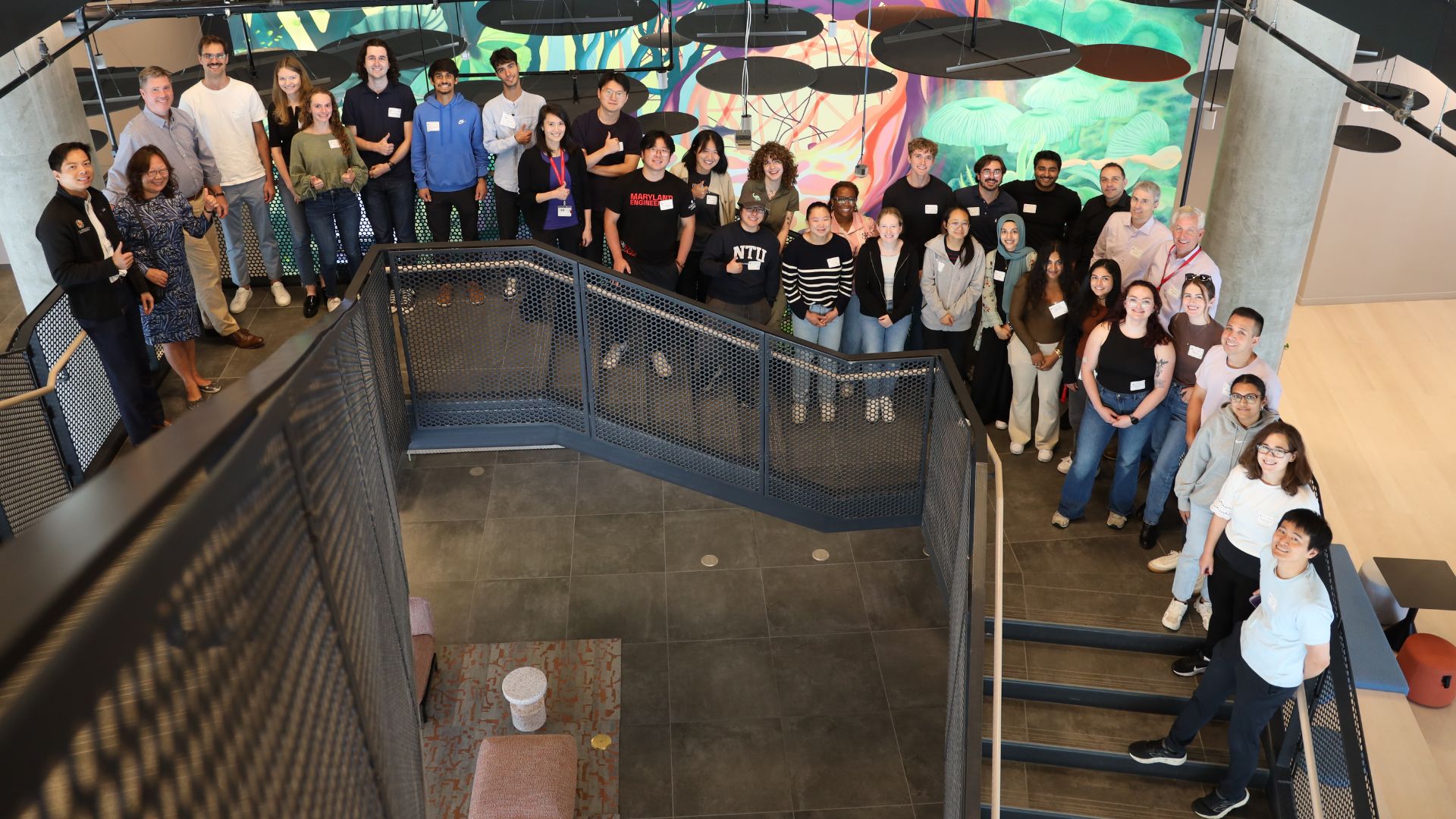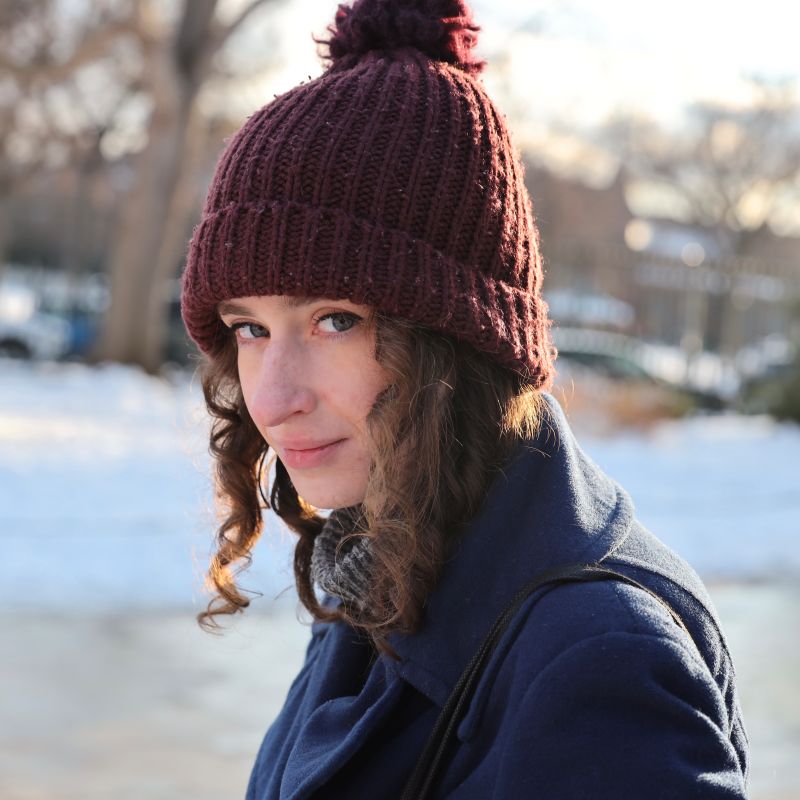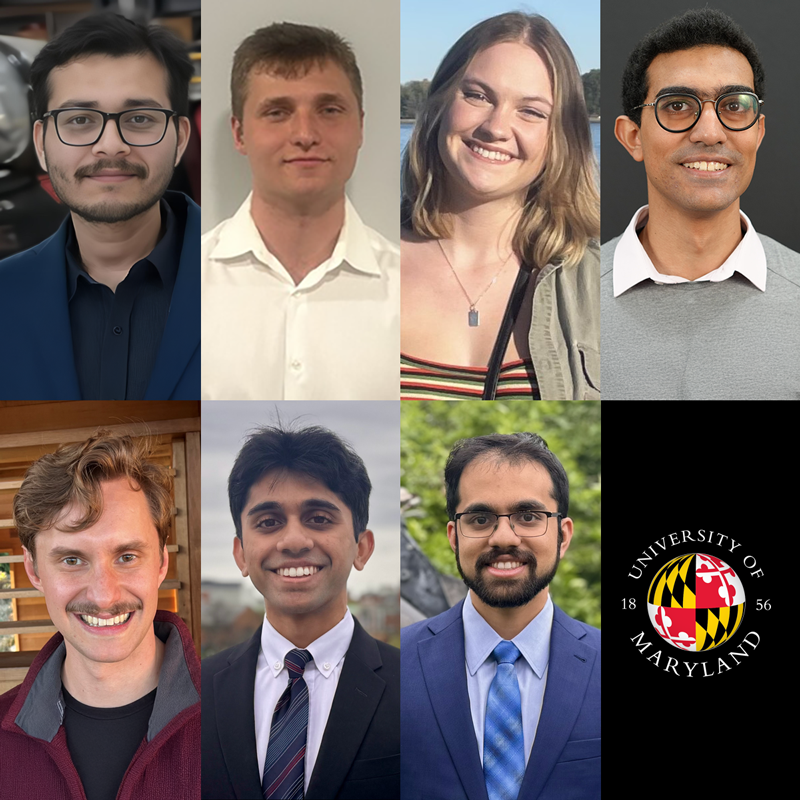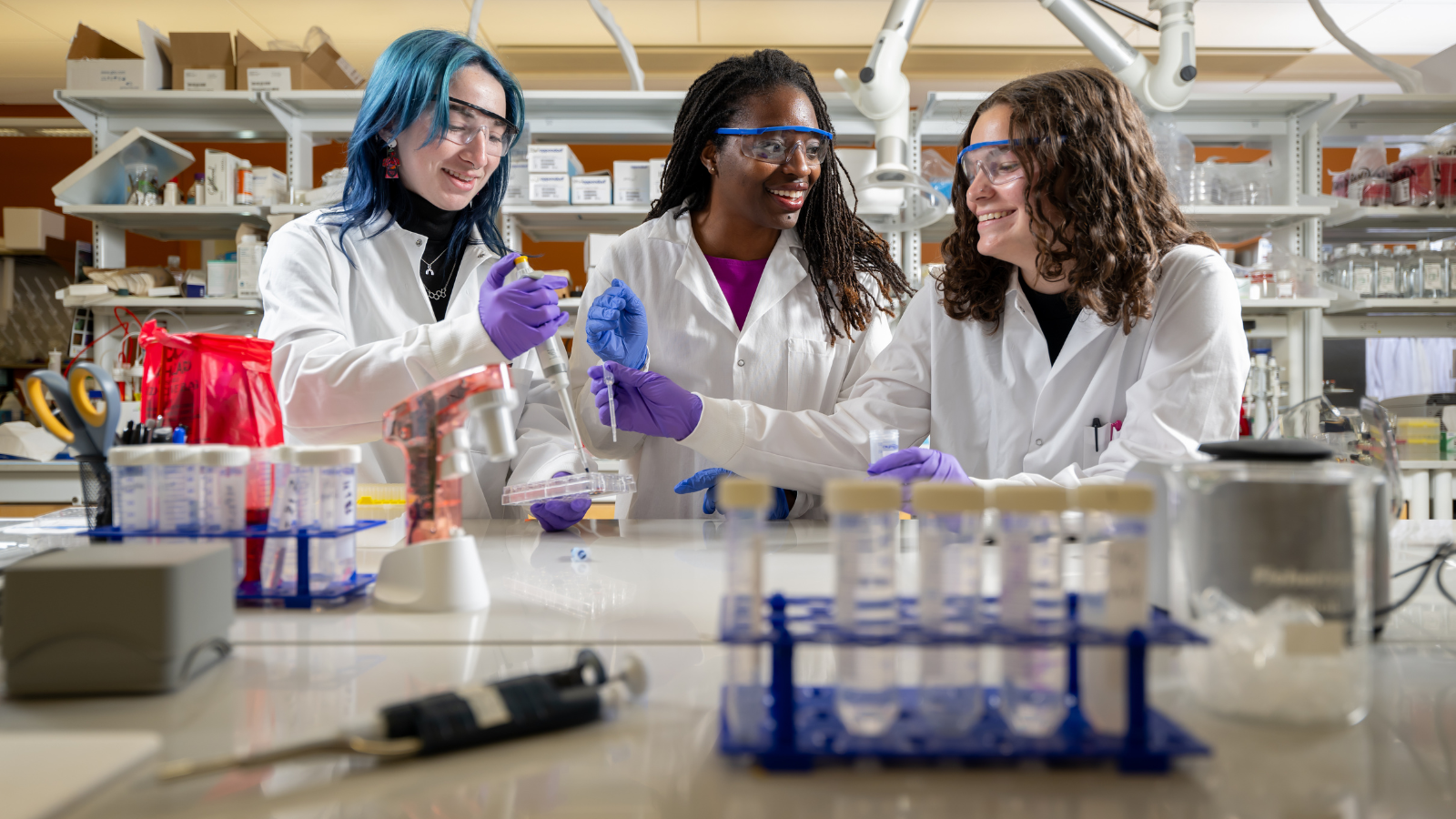Meet Tomorrow’s Health Care Leaders
October 30, 2025
Last Friday, the University of Maryland, College Park (UMCP), and the University of Maryland School of Medicine (UMSOM) at the University of Maryland, Baltimore (UMB), celebrated the launch of their new B.S.-M.D. Program, a joint initiative between the A. James Clark School of Engineering, the College of Computer, Mathematical, and Natural Sciences (CMNS), and UMSOM. Supported by a five-year, $12.75 million grant from the MPowering the State partnership, the program prepares highly motivated undergraduates majoring in engineering, computer science, or mathematics to continue on to medical school.
At the reception, University of Maryland President Darryll J. Pines and University of Maryland, Baltimore President Bruce E. Jarrell welcomed attendees. The program continued with introductions by Ian White, professor of bioengineering and co-director of the B.S.–M.D. program, followed by remarks from deans Samuel Graham of the A. James Clark School of Engineering, Amitabh Varshney of the College of Computer, Mathematical, and Natural Sciences, and Mark T. Gladwin of the University of Maryland School of Medicine.
"Revolutionizing health care requires the unique mindset and skills of engineers and computer scientists,” said Samuel Graham, dean of the A. James Clark School of Engineering at the kickoff. “We established our BS-MD program to recruit extraordinary students, ones with an interest in engineering, artificial intelligence and data science, and medicine, and prepare them to excel in medical school at UMB. You will improve the doctor-patient experience because you will have the tools and an understanding of how to harness them.”
The B.S.–M.D. Program offers students a structured pathway from their undergraduate studies at UMCP to potential admission into medical school at UMSOM. Through coursework, clinical experience, and mentorship, students will gain early exposure to medicine while continuing to pursue research and technical development. The program aims to produce future physician-engineers capable of designing innovative tools, technologies, and data-driven solutions to improve healthcare.
“There is a saying: ‘You can have a thousand problems in your life until you have a health problem—then you only have one.’ That’s what draws me to medicine: the chance to combine scientific understanding with genuine compassion to help people reclaim their health and their lives,” says B.S.-M.D. student, Zuzana Huserova.

This fall marks the inaugural semester for the first cohort of seven B.S.–M.D. students. Each student brings a distinct background and set of interests to the program, but all share the same vision of combining science, technology, and compassion to shape the future of healthcare.
Meet the First Cohort

Zachary Blumenfeld
Major: Bioengineering
Zachary Blumenfeld, from Howard County, Maryland, grew up surrounded by medical influences that shaped his interest in medicine and engineering. His grandfather, a UMD medical school alumnus, inspired in him a belief in the responsibility to blend compassion and knowledge for community good. His uncle, a cardiologist and professor at Johns Hopkins, influenced his appreciation for research and exploration in clinical settings.
At UMCP, Blumenfeld chose bioengineering to pursue that intersection of innovation and medicine, citing the university’s cutting-edge research in organ transplantation and nanotechnology-based immunotherapies as decisive factors in his enrollment. Having lived through COVID-19, his interest turned toward allergy and immunology, alongside bioengineering strategies that harness artificial intelligence to create therapies for global health challenges.
Outside academics, Blumenfeld balances his studies with sports and music. He plays intramural flag football, basketball, and tennis, and enjoys rediscovering the tenor saxophone. He looks forward to building close bonds within the cohort and exploring opportunities that link bioengineering research with clinical applications.
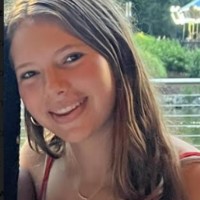
Zuzana Huserova
Major: Bioengineering
Minor: Computer Science
Zuzana Huserova was born in Salt Lake City, Utah, and has lived in several places before settling in North Potomac, Maryland, where she resides now. Her outlook on medicine is shaped by a belief that health can be easily taken for granted, and that its loss clarifies what truly matters. She feels drawn to the field by the opportunity to blend scientific understanding with compassion, helping others regain their health and sense of self.
As a pre-med bioengineering major with a computer science minor, Huserova appreciates how UMD recognized many of her credits, allowing her to pursue both fields alongside her membership in the Integrated Life Science Honors cohort. This support gave her flexibility to choose advanced classes and explore research opportunities spanning nuclear physics to brain imaging studies, especially focusing on the placebo effect.
Currently, her academic focus lies at the intersection of bioinformatics and biomedical instrumentation, an area where patient-focused insight emerges from blending biotechnology with computational approaches. Through shadowing experiences in operating rooms and exposure to various surgical specialties, she is exploring different topics in clinical medicine and remains open to discovering new methods as she progresses in the program.
Outside the classroom and lab, Huserova continues her passion for running, a passion from her years on high school Track and Cross Country teams. She enjoys working out and spending time with friends she’s made at UMD. With her parents both having emigrated from the Czech Republic, Huserova greatly values the support and network provided by the B.S.-M.D. program, particularly its collaborations with UMSOM, which help foster physician connections and clinical growth.
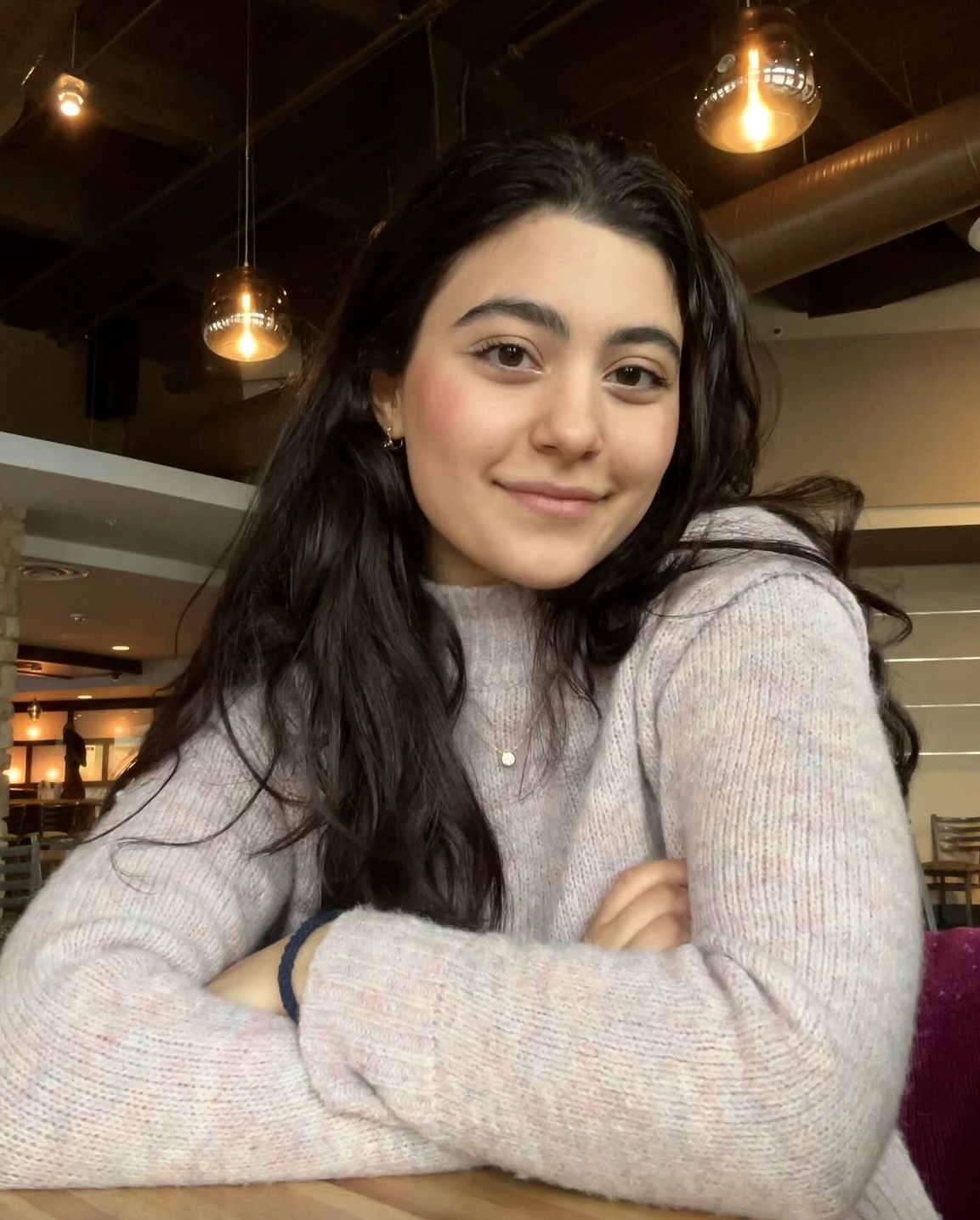
Nane Manukyan
Major: Bioengineering
Originally from Armenia and raised in Howard County, Maryland, Nane Manukyan was inspired by her father’s work as a military surgeon. She developed a deep fascination with how prosthetics, regenerative medicine, and surgical devices can transform patient outcomes. Pursuing a degree in bioengineering at UMD provided the technical foundation she needed to explore how technology and medicine can work together.
Manukyan’s interests lie in reconstructive and transplantational medicine. She is especially passionate about tissue engineering and stem cell research and how these disciplines can be used to address organ shortages and improve surgical recovery. The B.S.-M.D. program appealed to her because of its emphasis on practical exposure to physicians and medical researchers.
Outside the classroom, she is active in several student organizations, serving as the Engineering Representative in UMD’s Student Government Association and as a member of the Student Health Advisory Committee. She balances this commitment with hobbies that help her stay centered, including dance and martial arts. Manukyan anticipates that shadowing physicians through the program and connecting with medical students will deepen her understanding of medicine’s human and technical sides.
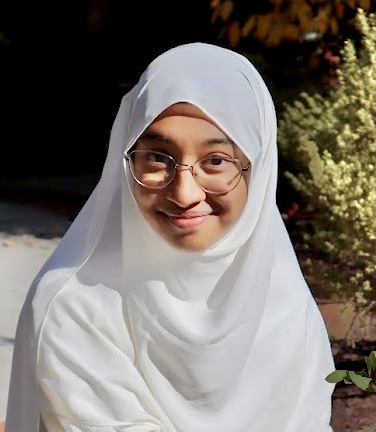
Zehra Syeda
Major: Bioengineering
Growing up in Montgomery County, Maryland, Zehra Syeda was shaped by a community that strengthened her awareness of global and local health needs. Her work on diagnostic assays and clinical research revealed that meaningful innovation occurs where data and empathy intersect. She views the B.S.-M.D. pathway as an opportunity to bridge engineering precision with compassionate care, integrating her experience in research, global advocacy, and patient-centered design.
Syeda’s academic focus lies in medical diagnostics, particularly those that improve trauma and critical care outcomes. Through her previous research on point-of-care devices and data systems, she saw firsthand the difference fast, reliable results can make in patient recovery. Her goal is to develop diagnostics that are both accessible and accurate, serving underserved communities as well as major healthcare institutions.
Beyond academics, Syeda is an ice skater and educator. She has taught children of all abilities to skate and currently teaches Arabic to younger students. She is also organizing a fellowship that supports women in Ghana by training them in sewing and entrepreneurship. Her dedication to teaching and empowerment reflects her commitment to service in all forms.

Tien Huynh
Major: Bioengineering
Originally from Vietnam and now a sophomore studying bioengineering, Tien Huynh came to UMD from central Florida after being drawn to the strength of its engineering programs and resources for pre-medical students. He describes the B.S.-M.D. program as an opportunity to combine medical aspirations with a passion for technology.
Huynh is interested in anesthesiology and biomedical devices. For him, anesthesiology represents both precision and empathy, as anesthesiologists safeguard patient comfort during critical procedures. On the engineering side, he hopes to contribute to innovations in devices that improve surgical safety and patient monitoring.
Outside of class, Huynh stays active through mixed martial arts, weight training, and playing guitar. He enjoys connecting with peers who share his enthusiasm for both science and creativity. Huynh values the mentorship component of the program, where meaningful relationships with physicians and researchers will guide his development as a future clinician.
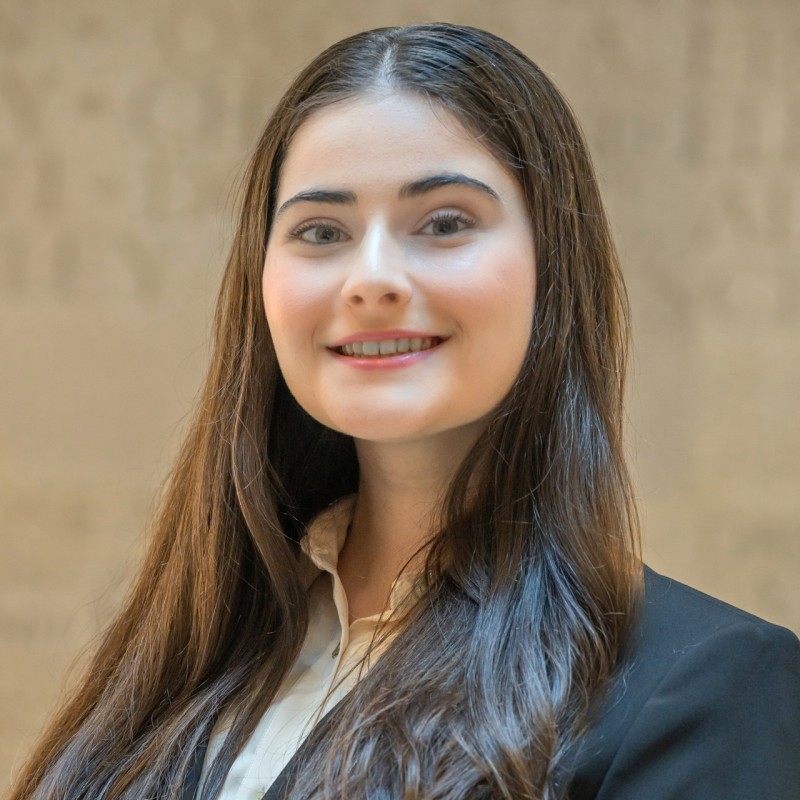
Michelle Radov
Major: Mathematics
From Baltimore County, Maryland, Michelle Radov has long been drawn to both analytical problem-solving and the pursuit of medicine. After receiving the Banneker Key Scholarship, UMD became a natural choice for her undergraduate studies.
In the B.S.-M.D. program, she found the structure that allows her to merge those interests, specializing in the use of data science and mathematical modeling to predict disease outcomes. Her research focuses on leveraging neural networks to understand the spread of viruses and identify patterns that could improve personalized care. Radov is motivated by the belief that physicians who understand technology can play an essential role in shaping the future of predictive medicine.
Outside academics, she plays on the University of Maryland Women’s Ice Hockey Team and participates in intramural volleyball. Balancing athletics and academics, she finds that teamwork and discipline translate naturally into both environments. She looks forward to her first hands-on clinical experience next summer through the program’s partnership with UMSOM.
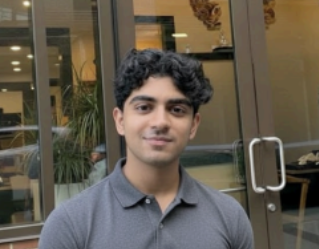
Neal Rangarajan
Major: Computer Science
Neal Rangarajan, a computer science major originally from California, joined the B.S.-M.D. program to pursue an unconventional path toward medicine. His background in computational systems gives him a unique perspective on problem-solving in healthcare.
He is interested in emergency medicine and hopes to apply data analysis and computational models to improve response systems for emergency medical care. Through the program, Rangarajan looks forward to engaging with the Maryland medical community, exploring facilities such as the University of Maryland Shock Trauma Center, and translating his technical skills to real-world practice.
In his free time, Rangarajan enjoys working out, spending time with friends, and exploring new foods and films. His experience adjusting to a new region and balancing computer science with pre-med coursework has strengthened his resilience and drive. He sees the program as a supportive network where students from different fields share the same goal of advancing healthcare through innovation.




